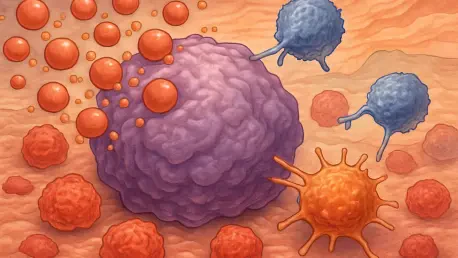
The persistent feeling of being physically older and less resilient following a serious illness is no longer just a subjective complaint but is now understood as a tangible biological process driven by cellular damage. Many who recover from infections like influenza or COVID-19 report lingering

A significant portion of cancer patients do not respond to immunotherapy because their tumors are immunologically inactive, but a groundbreaking collaborative study from Cornell University researchers has unveiled a remarkable solution using ultrasmall fluorescent silica nanoparticles, known as

For the millions of people battling chronic nerve pain, where the lightest touch can feel like a searing burn, hope often feels distant. But a groundbreaking study is challenging the way we think about pain, shifting the focus from masking symptoms to repairing the damage at a cellular level. To

A groundbreaking therapy capable of halting one of the most aggressive forms of cancer has long been shadowed by a side effect so severe that it forces patients to abandon their best hope for survival. This paradox has defined the initial chapter of PSMA-targeted radioligand therapy, a significant

In the relentless battle against the opioid epidemic, medical intervention has largely been a reactive measure, but a pioneering vaccine now entering its first human trials aims to fundamentally shift this paradigm from response to prevention. Developed by researchers at the University of Houston

With a deep background in biopharma and a keen eye on the intersection of technology and medicine, Ivan Kairatov brings a critical perspective to the evolving landscape of nutritional science. We sat down with him to dissect a recent, comprehensive meta-analysis on the ketogenic diet's role in